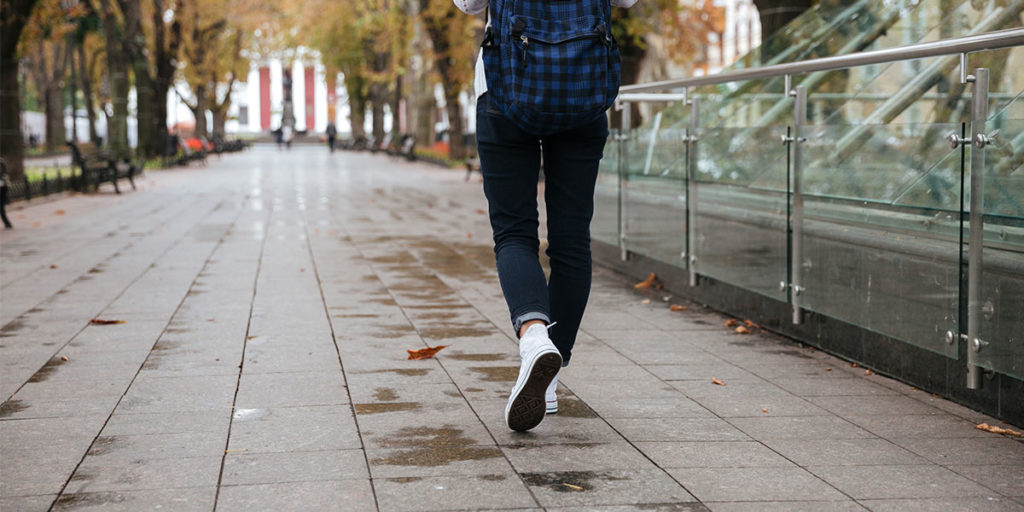Quick Hits
Daily brief research updates from the cognitive sciences

If you want to age better, then walk quicker, or those who walk quicker, age slower. That is the result of a recent study of 400,000 UK adults mapped to genetic markers of age by the University of Leicester.
What exactly did these researchers find?
They looked at the telomeres which you may have heard of. These are caps at the end of your chromosomes that protect the chromosome (which houses your DNA). They’re kind of like the caps on shoelaces which stop them fraying. Once these shorten or disappear your DNA is at danger of losing the ability to replicate.
Telomere length seems to be a pretty good indicator of biological age irrespective of how old you are.
And this is where the connection becomes interesting. It seems that fast, or brisk, walkers have longer telomeres, and this can lead to a whopping 16 years younger biological age by midlife. That’s a lot. This is also independent of how much other exercise you get.
The same researchers have also shown previously that as little as 10 minutes of brisk walking a day is associated with longer life expectancy and that brisk walkers can have up to 20 years greater life expectancy than slower walkers.
Though they haven’t been able to fully confirm that faster walking speed will lead to greater life expectancy (in contrast to those who naturally walk faster having a natural longer life expectancy) they do note after this study that it is likely.
So, get yourself walking, briskly. My advice for those in the office to have a 3-minute brisk walk every hour seems also to hold very, very true for this, and other reasons.

Andy Habermacher
Andy is author of leading brains Review, Neuroleadership, and multiple other books. He has been intensively involved in writing and research into neuroleadership and is considered one of Europe’s leading experts. He is also a well-known public speaker speaking on the brain and human behaviour.
Andy is also a masters athlete (middle distance running) and competes regularly at international competitions (and holds a few national records in his age category).
Reference
Paddy C. Dempsey, Crispin Musicha, Alex V. Rowlands, Melanie Davies, Kamlesh Khunti, Cameron Razieh, Iain Timmins, Francesco Zaccardi, Veryan Codd, Christopher P. Nelson, Tom Yates, Nilesh J. Samani.
Investigation of a UK biobank cohort reveals causal associations of self-reported walking pace with telomere length.
Communications Biology, 2022; 5 (1)
DOI: 10.1038/s42003-022-03323-x
More Quick Hits
Don’t Try to Change Minds – Change Behaviour
Don’t try to change minds, but simply change behaviour is the result a group of researchers have come to with regard to vaccinations.
Why Heat Makes Us Sleepy
Imagine if you are working and your stress levels are increasing, and then automatically soothing music is turned on to calm you down. Or alternatively if you are heading towards that after lunch dip of drowsiness and upbeat energetic music is turned on to energise you.
Tracking Mental States Through Your Skin – In Real Time
Imagine if you are working and your stress levels are increasing, and then automatically soothing music is turned on to calm you down. Or alternatively if you are heading towards that after lunch dip of drowsiness and upbeat energetic music is turned on to energise you.
Testosterone Promotes Cuddling
Quick HitsDaily brief research updates from the cognitive sciences es, you read the headline correctly. Testosterone considered the ultimate male hormone and often associated with aggression has had a bad rap. So, is all of this wrong? Well, the...
Online Learning Triggers Different Stress Responses
Quick HitsDaily brief research updates from the cognitive sciences ot so long ago all learning went online – out of necessity. There has been plenty pf research into differences in online learning and in-person learning but this study by Gellisch...
Use It Or Lose It – Mental Activity Reduces Dementia
Quick HitsDaily brief research updates from the cognitive sciences regularly write on which activities reduce risks of cognitive decline (just last week I reported on how your job can protect your mental abilites with age and also doing household...






